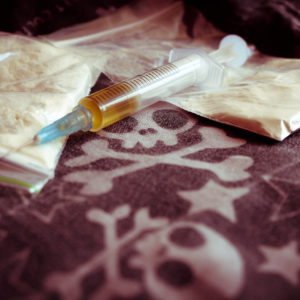Angela Pryor, a 41-year-old woman from Ross County, Ohio, is not living the life she thought she would.
She used to stay at home and take care of her kids while her husband, Jesse, went to work as a carpenter. But as Jesse fell into opioid addiction, Angela had to pick up the slack. It became even harder when he ended up in jail for selling drugs. And harder still when Jesse overdosed and passed away in 2015.
Now Angela’s struggling to care for her five children alone. She’s even lost her house, the Atlantic reported recently.
A few hundred miles to the east, in Washington, another familiar scene played out in the pages of the New York Times.
When Charlene Hamilton’s husband, Carl Harris, was jailed for selling drugs, she was left behind to take care of the kids, pay the rent and feed the family. Like Angela, Charlene found herself homeless more than once. She slept in a car for a month while her kids stayed with other relatives. Meanwhile in prison, Carl started using the drugs he once sold.
The similarities in their stories don’t stop there. Both families lived in communities plagued by joblessness. In Ohio, the decline of good-paying manufacturing jobs combined with health problems have led to a drug epidemic, largely among white men, that was responsible for more than 3,000 deaths statewide just last year.
Meanwhile, majority-black communities have been suffering from unemployment for decades. In the District of Columbia the unemployment rate for black residents — now at 13.4 percent — has actually gotten worse since the recession, even while every other racial and ethnic group in the city has seen an improvement.
These are the conditions that can lead a husband and father like Carl Harris or Jesse Pryor to turn to drug use, abuse and trade. It is what’s called economic despair. And it’s happening all over the country.
As extreme inequality gets worse and the middle class disintegrates, many formerly middle-income white Americans are now experiencing the sorts of pain long suffered by poorer communities of color.
All that’s bad enough. But there’s one man who seems determined to make it all worse: Attorney General Jeff Sessions. Reversing an Obama-era guideline, Sessions recently told federal prosecutors to go after low-level drug offenders and to seek the toughest possible penalties against them.
It’s an unmistakable return to widely discredited mandatory minimum sentencing laws that treat drug use and abuse as a crime, rather than a mental or physical health issue. (Interestingly, Sessions shows little interest in prosecuting the white-collar criminals who are the cause of much of the income inequality that can lead to drug use in the first place.)
The effects of a return to harsher drug law enforcement go beyond the loss of our white and black fathers, husbands and friends. These policies will stifle children for generations to come, as new data show.
Sociology professor Kristin Turney “found that children with incarcerated parents were three times more likely to suffer from depression or behavioral problems, and twice as likely to suffer from learning disabilities and anxiety,” The Nation reported.
That same story quotes a former New Orleans city councilman and former teacher who is an ex-offender himself. He said that when he speaks to schoolchildren and asks if any of them have a family member in prison, “just about everybody raises their hand.”
These students are more statistically likely to drop out, too, which of course makes it more difficult to get a job, continuing the cycle of economic despair.
Poor white families who are now suffering can learn a lot from the suffering that poor black families have endured from this system for decades. These communities can come together to fight reactionary drug war policies like Sessions’, which exacerbate everyone’s suffering.
The Essie Justice Group is one such effort that brings together those often forgotten victims — the women and the families left behind — of the war on drugs, mass incarceration, and the economic inequality wrapped up in all of it.
Gina Clayton, who founded the group, has this message for those women like Angela and Charlene: “This loss that I’ve experienced is not OK, and we all need to do something about it.”

